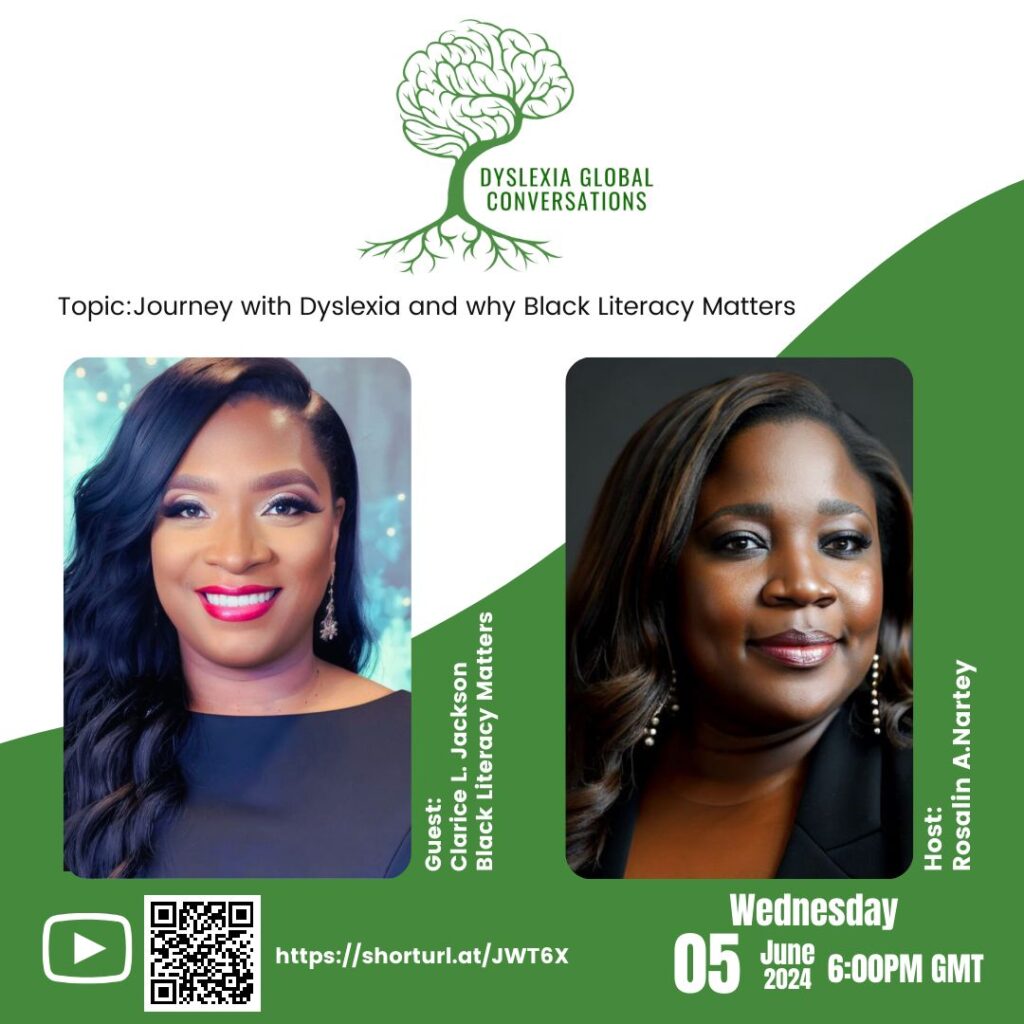
Dyslexia Global Conversations
Date: 5th June, 2024 at 6pm GMT
Topic: A Mother’s Journey with Dyslexia and Why Black Literacy Matters
Guest: Clarice L. Jackson
Clarice L. Jackson epitomizes visionary leadership, is a highly sought-after keynote speaker, and an unyielding advocate for educational fairness and freedom. Her transformative journey began in 2000, navigating her daughter’s dyslexia challenges, which ignited her mission to overhaul literacy instruction and access for vulnerable populations. With over 36 years of dedicated advocacy, she established The Voice Advocacy Center (VAC) in 2012, providing essential resources, dyslexia screening, and structured literacy tutoring.
Clarice leads Decoding Dyslexia NE and is the Founder/CEO of The Institute for Black Literacy Matters, amplifying voices in literacy advocacy and reform. Her national impact includes crafting the dyslexia national resolution for the NAACP and being featured in prominent media outlets for literacy, school choice, and educational freedom, such as Fox News, Fox Business, and NPR.
She has received esteemed accolades, including the 2016 National Coalition of 100 Black Women’s Ed Reform Award, the 2019 NAACP Freedom Fighter Service Award, and the 2023 Malcolm X Foundation Award. Most recently, she received the 2024 Dick Holland Literacy Advocate Award from the Phoenix Academy School in Omaha, NE.
Clarice will share her experience as a mother who raised a dyslexic child and the importance of black literacy.
Join us for an insightful conversation that promises to be fun, thought-provoking, and uplifting.
Join us on Dyslexia Global Conversation, a platform for real dyslexia stories and experts views on Dyslexia and related learning difficulties.
